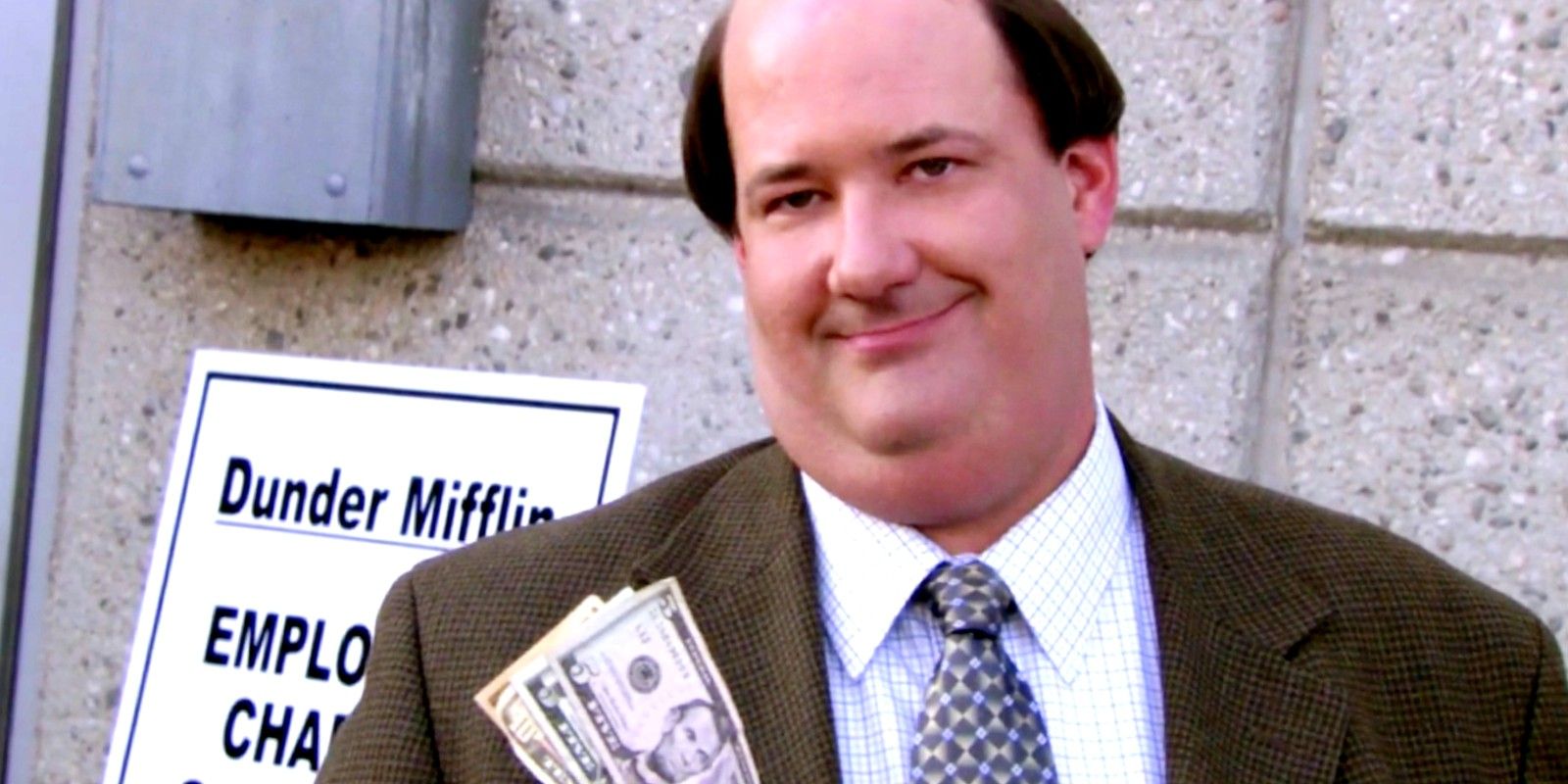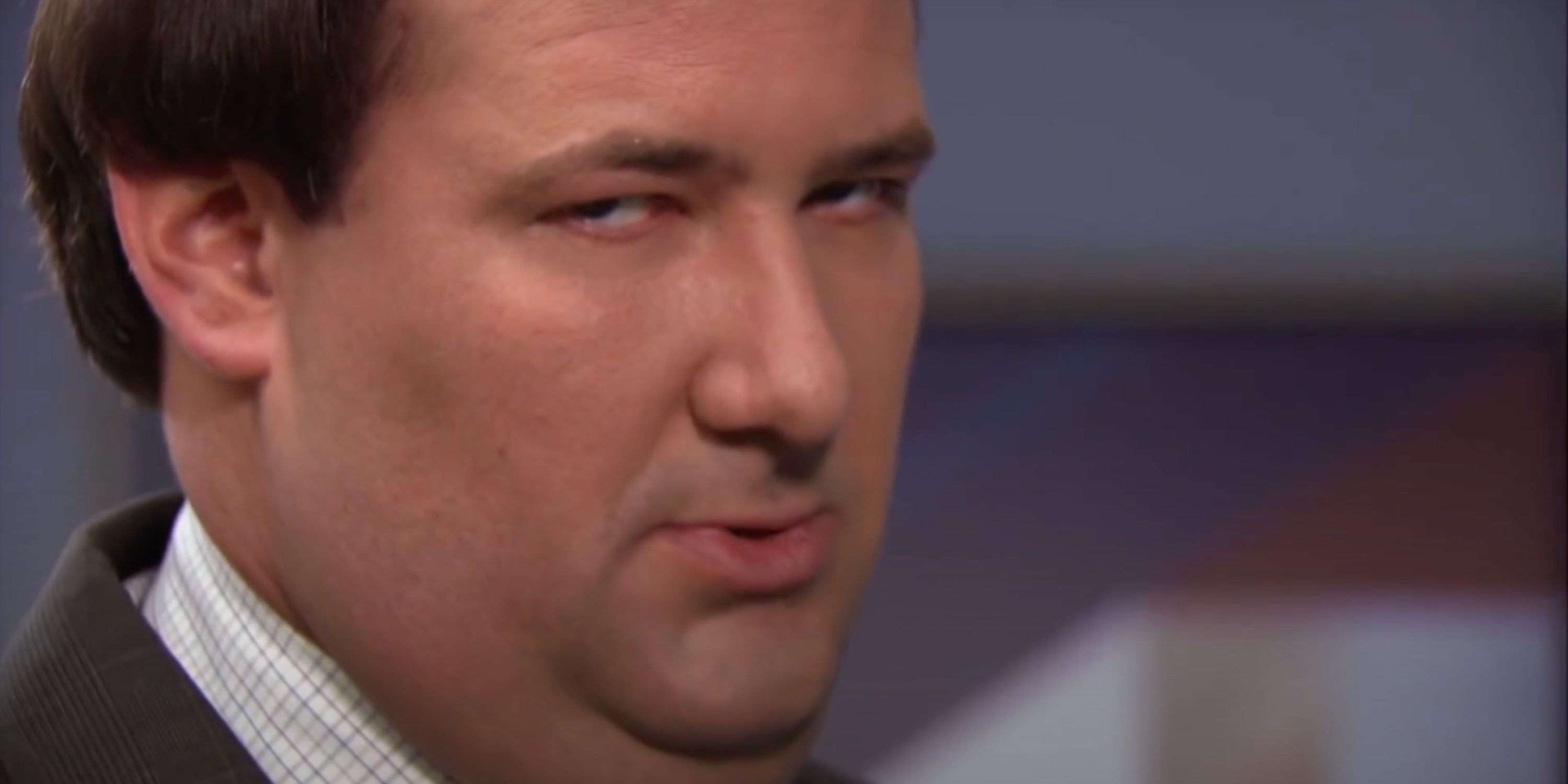In The Office, does Kevin Malone embezzle money from Dunder Mifflin? According to a popular YouTube video, Brian Baumgartner's character swindled his employer over several years, which explains how he managed to open up a bar after being fired. The Office's Kevin Malone is presented as a somewhat naive character throughout the series, yet his on-screen commentaries suggest that he may secretly be a genius.
The Office seemingly uses Kevin's character arc for narrative misdirection. During the first four seasons, it's loosely implied that he could be mentally challenged; a concept that is directly addressed and rejected by Kevin in The Office season 5 premiere. In the season 2 episode "Take Your Daughter to Work Day," the accountant worries that damning information could be found on his hard drive, a moment that further reinforces him as a questionable employee, much like the quality assurance director Creed Bratton. Kevin is also a known gambler, which may explain his motivations for secretly embezzling money from Dunder Mifflin.
A 2018 YouTube video (via 10K Productions) makes a strong case that Kevin does indeed steal from Dunder Mifflin in The Office. Interestingly, however, the best evidence comes from a series of webisodes that released between seasons 2 and 5. In fact, Kevin flat out admits to taking $2,800 from a petty cash fund at work (for gambling purposes), and also tells Roy Anderson (David Denman) that Oscar Martinez (Oscar Nunez) keeps a key for the petty cash drawer behind his computer, which demonstrates that Kevin knows the best way to acquire quick cash from his employer. The question remains: does Kevin steal in small amounts or does he systematically embezzle large sums of money for a post-Dunder Mifflin plan?
In The Office season 3 episode "The Convict," Kevin learns that his work colleague Martin Nash (Wayne Wilderson) previously spent time in prison for insider trading. After learning about the specifics, Kevin admits to the camera that the fraud scheme "sounds an awful lot" like what he does at Dunder Mifflin. Given that later webisodes show Kevin blatantly stealing petty cash from the office, it seems that he may have initially been uninformed about the legal consequences of his actions, only to then "up the ante" as the saying goes. The webisodes entitled "Kevin's Loan" are specifically about Kevin's gambling debts, and The Office series finale actually reveals that Kevin invented a number called "Keleven" to fix his accounting errors, which ultimately cost him his job. All of Kevin's collective statements and actions in The Office prove that he not only repeatedly stole from the Dunder Mifflin Scranton office, but also conspired to cover up his mistakes.
According to the aforementioned YouTube video, Kevin embezzled money from Dunder Mifflin to finance his own business. The Office series finale shows that Kevin owns a bar after being fired, which suggests that either he made a lot of money gambling or had a private fund after years and years of stealing from Dunder Mifflin. As a character, Kevin is especially entertaining because he often speaks with no filter and doesn't always remember that he's part of a documentary. If Kevin did systematically steal from Dunder Mifflin, it probably began as a small operation and then evolved into a larger fraud scheme. And that would explain the accountant's resting poker face throughout The Office, as he seems to be constantly planning his next move while gauging the potential consequences.


